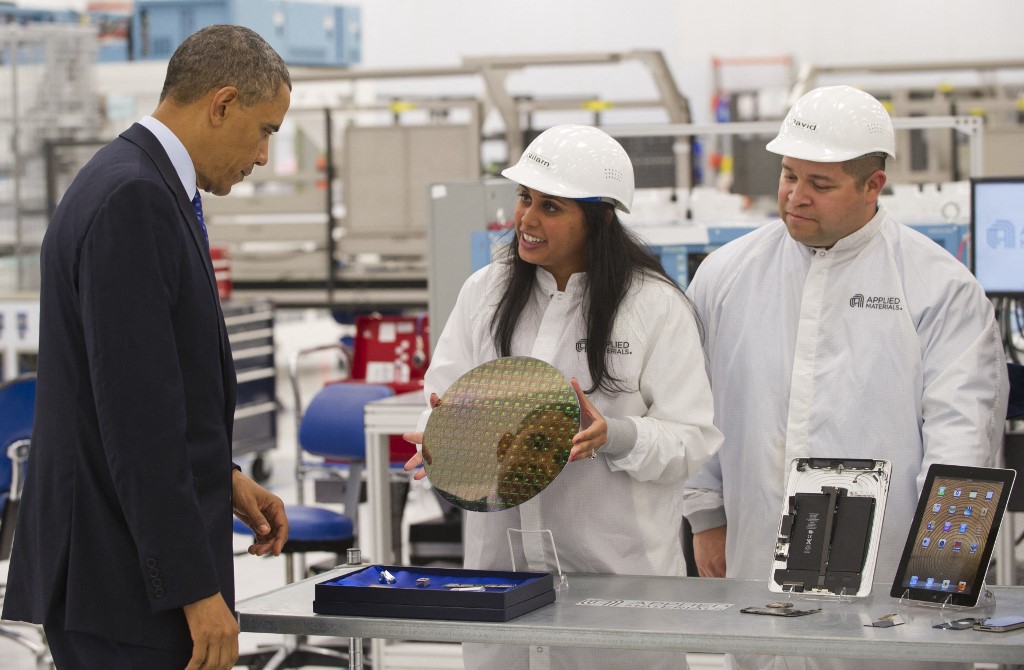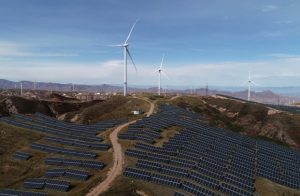(ATF) Applied Materials has terminated its $3.5-billion deal to buy Japanese peer Kokusai Electric Corp from KKR & Co as it failed to get timely approval from China’s regulator.
California-based Applied Materials said it “did not receive confirmation of timely approval from the regulator in China,” according to a statement on Monday.
The collapse of the takeover comes as trade relations between the US and China become increasingly strained. Sanctions enforced by former US president Trump have restricted Chinese telecom giant Huawei’s access to high-end microchips and Chinese chipmaker SMIC’s access to advanced chipmaking equipment.
And new President Joe Biden has not signalled that he would go more easy on Chinese companies.
Industry observers say Beijing may have worried about the consequences of a US company taking over Kokusai Electric given the US sanctions.
Applied Materials entered the deal in 2019, betting on a rise in demand for memory chips used in data centres, 5G phones and AI-powered devices. In January, it raised its bid for the Japanese company to $3.5 billion from $2.2 billion, up 59%, citing higher valuations in a growing industry.
The chip gear maker said the deal did not require the approval from US Justice Department, which had forced the company to scrap a $10-billion takeover of Japan’s Tokyo Electron Ltd in 2015.
Applied Materials will pay a termination fee of $154 million in cash to KKR HKE Investment for the deal that was annulled on March 19.
Applied Materials dominates the market for equipment involved in the early stages of turning silicon wafers into computer chips. It ranked No. 1 in the world’s semiconductor equipment market in 2020, according to data by The Information Network.
China accounted for 32%, or $5.46 billion of Applied Materials’ revenues for 2020, and is the American company’s largest market.
But Applied Materials has stopped business with several Chinese companies and research institutes on a blacklist produced by the US Department of Commerce, which include China’s largest LED manufacturer San’an Optoelectronics and Xian Jiaotong University.
Kokusai Electric was previously a Hitachi unit, until it was bought by investment firm KKR in 2017.
Key area of contention
Semiconductors have become a key area of contention in the trade war between China and the US under the administration of President Donald Trump. The US is the world’s biggest producer of chips while China is the biggest market.
In September of last year, when US chipmaker NVIDIA announced that it would acquire Arm for $40 billion from Softbank, many Chinese industry professionals expressed concerns.
UK-based Arm is the world’s largest chip architecture designer whose technology powers most of the world’s smartphones. Its customers include Apple, Qualcomm, and Huawei.
Ni Guangnan, an academic from the Chinese Academy of Engineering, said at a forum in September that the deal would be detrimental to China, potentially restricting China’s access to Arm chip architecture after it becomes an American company. He said China’s Ministry of Commerce may block the deal.
On Wednesday, Arm launched its latest chip architecture in recent years – the Armv9, and the company said it is not subject to US export regulations. This may open the door for Huawei.
However, the situation might change when Nvidia takes over the chip architecture company.
The Nvidia-Arm deal is expected to require multiple regulatory approvals in the UK, US, China, and other governments across the globe.
A number of big tech companies, including Qualcomm, Microsoft, and Google parent Alphabet, have come out against the deal, worrying that it would limit their access to Arm’s technology. The US Federal Trade Commission (FTC) has launched an antitrust probe into the takeover.






















